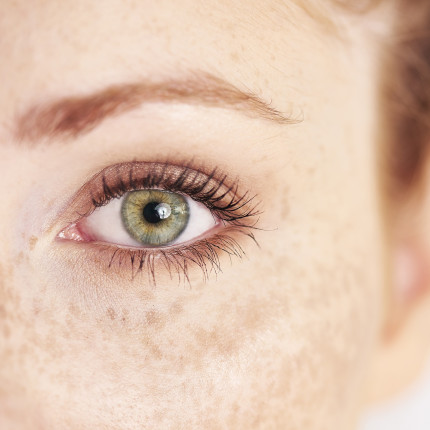We are on a mission to prevent avoidable blindness and sight loss.
Research into eye conditions is vital to prevent or slow down the onset of vision loss. Sight Scotland and Sight Scotland Veterans are the only Scottish sight loss charities funding and supporting medical research to save sight in the future and help people live well with sight loss today.
We support research into eye health conditions aimed at encouraging innovation and improving diagnosis, treatment, person-centred care and better outcomes for people with sight loss.

What Sight Scotland funds
Scottish Collaborative Optometry-Ophthalmology Network e-research (SCONe)
The Scottish Collaborative Optometry-Ophthalmology Network e-research (SCONe) is a pioneering project to build a world-leading, retinal image resource for innovation in eye research, healthcare, and education. It was established in 2020 by the University of Edinburgh and Glasgow Caledonian University with funding from Sight Scotland, The RS Macdonald Charitable Trust and The Royal College of Surgeons of Edinburgh.
The first phase of the research project, around enabling early detection of AMD, the UK’s most common cause of blindness has been completed. The SCONe project is now moving into its second phase, scaling up engagement with community optometrists across Scotland, expanding the retinal image repository, extending governance and regulatory applications to support this, and moving ahead with the first stages to develop a prototype diagnostic tool for image analysis and disease screening.
Visit the SCONe website to find out more or sign up to be part of the project if you are an optometrist.
The Royal College of Surgeons
During the financial year 2024/25, Sight Scotland provided medical research grants through the Royal College of Surgeons of Edinburgh valued at £60,000.
This project focused on tackling the global issue of corneal blindness — the fifth leading cause of blindness worldwide. While corneal transplants can restore sight, there is a major shortage of suitable donor tissue, even in countries like the UK.
The funding supported research using donated human eye tissue (from deceased donors), development of the laser tool itself, and tests to ensure that the tissue remains healthy and transplantable after laser cutting. We also used real-time imaging to monitor the process and improve precision.
If successful, this research could help reduce the pressure on donor tissue supply and give more people the chance to have their sight restored through corneal transplants.
The Ophthalmology Research Committee of the Royal College of Surgeons of Edinburgh
Each year Sight Scotland provides crucial funding to the Ophthalmology Research Committee of the Royal College of Surgeons of Edinburgh. This funding supports fundamental research into eye disease and clinical research, making groundbreaking developments into gene therapies for the treatment of blindness.
If you are interested in applying for funding, please contact the Royal College of Surgeons of Edinburgh.
An example a funded project:
Dr Roly Megaw, University of Edinburgh: In 30% of cases, we are unable to identify the faulty gene that causes a patient’s inherited retinal dystrophy (IRD). Unless we know the exact gene change, patients cannot qualify for gene therapies that could prevent blindness.
Project: Identifying therapeutic targets for retinitis pigmentosa by defining photoreceptor cell death. Dr Megaw's research is using modern technology and software to reanalyse the DNA of patients who have not had their gene change identified, in order to improve diagnosis rates.
Predicted impact: More people with IRD will get a genetic diagnosis, giving them access to innovative treatments on the NHS and in clinical trials.

What Sight Scotland Veterans funds
Action Against AMD
Sight Scotland Veterans co-funds Action Against AMD (AAAMD) in partnership with Blind Veterans UK and the Macular Society. AAAMD is working with multiple stakeholders to increase investments in and drive research into the identification of new interventions to stop the progression of early AMD.

Support our research
Help us continue our research into tackling the most common causes of sight loss.